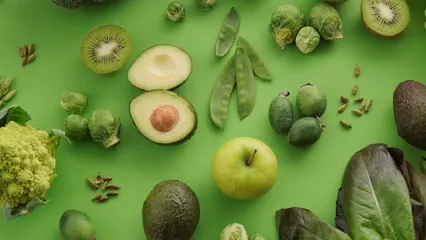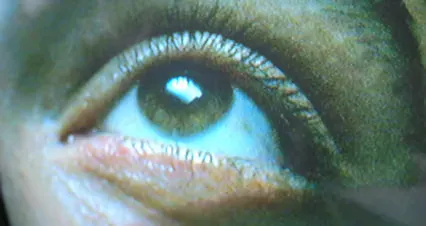
Why Is My Tongue Yellow? Understanding Causes and Treatments
Introduction
Have you ever looked in the mirror and noticed a yellow tongue? This common issue can be a surprising sight! While often harmless, a yellow tongue may signal underlying health concerns. This article aims to uncover the causes, symptoms, and treatments of yellow tongue, along with guidance on when to seek medical help.
Summary and Overview
Yellow tongue is characterized by a yellowish coating on the tongue’s surface. It can appear as a light yellow hue or a more intense shade. Typically, yellow tongue results from bacteria buildup or lifestyle factors. However, it can also indicate serious health issues, including infections.
Maintaining good oral hygiene is key to preventing yellow tongue. Regular brushing, flossing, and tongue scraping can help keep your mouth healthy. To really up your oral hygiene game, consider adding a Tongue Scraper to your routine. This handy tool not only removes bacteria but also freshens your breath, making you the life of the party (or at least the one with the freshest breath).

Causes of Yellow Tongue
Poor Oral Hygiene
Inadequate oral hygiene is one of the leading causes of yellow tongue. Neglecting to brush your tongue can lead to the accumulation of bacteria, dead skin cells, and debris. This buildup often results in discoloration.
To combat this, establish a consistent oral care routine. Brush your teeth twice daily, floss regularly, and don’t forget to clean your tongue. Using a tongue scraper can effectively remove buildup and improve your oral health.
Statistics show that nearly 50% of adults experience some form of gum disease, which highlights the importance of maintaining good oral hygiene. By focusing on these habits, you can help prevent yellow tongue and promote overall wellness.
Dietary Factors
Your diet can significantly influence the color of your tongue. Sugary foods and brightly dyed snacks are common culprits. Foods like candy, soda, and even certain sauces may leave a yellowish tint. Have you noticed your tongue changing after a sweet treat?
Hydration plays a vital role too. When you’re dehydrated, bacteria thrive more easily on your tongue. Drinking enough water helps wash away food particles and bacteria. To keep your hydration in check, try a Water Bottle with Time Marker. It’ll remind you to sip throughout the day, keeping your mouth (and tongue) happy!
Did you know that a study found 90% of adults consume less than the recommended fiber? This can lead to oral health issues, including tongue discoloration. Keeping your diet balanced can help maintain a healthy tongue color. Fiber-rich snacks, like Fiber-Rich Snack Bars, can be a delicious way to boost your intake!

Tobacco Use
Tobacco products contribute significantly to yellow tongue. Smoking and chewing tobacco introduce numerous harmful chemicals into your mouth. These substances irritate the tongue and promote bacterial growth. Have you ever thought about how smoking affects your oral health?
The American Cancer Society states that about 34 million adults in the U.S. smoke. This habit not only leads to yellowing but also increases your risk of serious oral health problems. Using tobacco can lead to gum disease and oral cancer, which are far more concerning than tongue discoloration alone.
Quitting smoking can reverse many of these changes, improving both tongue appearance and overall health. If you need a little extra help, consider checking out a Natural Deodorant to stay fresh while you kick the habit!
Medications
Certain medications can cause your tongue to appear yellow. Antibiotics are one common example. They disrupt the balance of bacteria in your mouth. Bismuth compounds, like Pepto-Bismol, can also stain the tongue. Have you checked the side effects of your meds lately?
Other medications, such as antipsychotics, may lead to dry mouth. This dryness allows bacteria to accumulate, causing discoloration. If you notice a change in your tongue after starting a new medication, consult your healthcare provider.
They can help assess the situation and suggest alternatives if necessary.

Health Conditions
In some cases, yellow tongue can indicate underlying health issues. Conditions like jaundice, which causes yellowing of the skin and eyes, may also affect your tongue. This occurs due to excess bilirubin in your body. Have you noticed any other symptoms, like fatigue or abdominal pain?
Diabetes is another condition linked to yellow tongue. Research shows that individuals with diabetes often experience oral health issues. Keeping an eye on your overall health can be crucial. For more information on how certain health conditions can lead to unusual sensations like yellow tongue, check out this article on why do certain health conditions cause pins and needles sensations.
Understanding the relationship between health conditions and symptoms like yellow tongue is essential. Learn more about this connection.
If your tongue remains yellow for an extended period, or if you have concerning symptoms, it’s time to seek medical advice. Early detection can make a significant difference in managing serious health conditions.

Symptoms of Yellow Tongue
Common Accompanying Symptoms
A yellow tongue can come with various symptoms. You might notice bad breath, a burning sensation, or a dry mouth. It’s essential to pay attention to these signs. They can indicate issues with oral hygiene or underlying health conditions.
The appearance of yellow tongue can vary. It might present as a thin yellow coating or a thicker, greasy layer. Each variation can signal different causes. For instance, a thick coating might suggest an accumulation of bacteria or dead skin cells.
Monitor your symptoms closely. If your yellow tongue persists or worsens, it’s a good idea to consult a healthcare professional. Recognizing changes early can help you maintain your overall health.

Diagnosis of Yellow Tongue
Diagnosing yellow tongue often starts with a physical examination. A healthcare provider will assess the tongue’s appearance and ask about your medical history. They may inquire about recent medications, dietary habits, and oral hygiene practices.
In some cases, additional tests may be necessary. These can include blood tests to check for infections or liver issues. A tongue swab might also be taken to identify any bacterial or fungal infections. Each of these evaluations helps pinpoint the cause of the discoloration.
If yellow tongue persists despite good oral hygiene, seeking professional evaluation is crucial. Early diagnosis can lead to effective treatment and prevent potential complications. Don’t hesitate to reach out if you have concerns about your symptoms.

Treatments for Yellow Tongue
Home Remedies
Improving oral hygiene is crucial for treating yellow tongue. Start with tongue scraping. This simple practice removes bacteria and debris. Use a tongue scraper or the back of a toothbrush to gently clean your tongue daily.
Brushing your teeth twice a day is essential. Don’t forget to brush your tongue too! This helps eliminate buildup that can cause discoloration. Consider using a mouthwash with antibacterial properties, such as Antibacterial Mouthwash. It can help reduce bacteria in your mouth.
Staying hydrated is another important step. Drinking plenty of water keeps your mouth moist. It helps flush away food particles and bacteria. Anecdotal evidence suggests that many people see improvements with these practices. Regularly cleaning your tongue can lead to noticeable results.

Medical Treatments
If yellow tongue persists despite improved hygiene, it may indicate a deeper issue. In such cases, medical intervention might be necessary. Consult your healthcare provider to explore underlying causes.
For example, oral thrush, a fungal infection, may require antifungal medications. If dehydration is an issue, your doctor may suggest ways to increase fluid intake. Additionally, medications can sometimes lead to discoloration. Review your current medications with a healthcare professional.
Always follow your healthcare provider’s recommendations for any medical treatments. They can guide you on the best course of action based on your condition.

Prevention Tips
Preventing yellow tongue is often straightforward. Start by maintaining proper hydration. Aim to drink enough water throughout the day. This simple habit can significantly impact your oral health.
Dietary changes also play a role. Limit sugary foods and drinks, which can contribute to bacterial growth. Incorporate fiber-rich foods, as they promote saliva production. Saliva is essential for keeping your mouth clean. You might even consider adding an Organic Fruit and Nut Mix to your snacks for a healthy boost!
Quitting smoking can greatly benefit your oral health. Tobacco use leads to discoloration and other oral issues. Finally, don’t skip regular dental check-ups. Visiting your dentist ensures that any potential problems are caught early.
By following these tips, you can help prevent yellow tongue and maintain a healthy mouth.

Conclusion
In summary, yellow tongue can arise from various factors. Poor oral hygiene, dietary choices, tobacco use, certain medications, and underlying health conditions play significant roles. Maintaining good oral hygiene is crucial. Regular brushing, flossing, and tongue scraping can help prevent this discoloration.
Stay aware of your body’s signals. A yellow tongue may indicate underlying health issues. If the discoloration persists or worsens, consulting a healthcare professional is wise. Early intervention can lead to better health outcomes and peace of mind.

FAQs
What are the common causes of yellow tongue?
Yellow tongue is often due to poor oral hygiene. Factors like dehydration, smoking, and certain medications can contribute. Dietary choices, especially sugary or dyed foods, also play a role.
How can I get rid of yellow tongue quickly?
To improve your tongue’s color, enhance your oral hygiene. Brush your tongue daily, use a tongue scraper, and stay hydrated. Incorporating fiber-rich foods can also help.
Is yellow tongue a sign of a serious condition?
While yellow tongue can be harmless, it might indicate underlying health issues. Persistent discoloration or other symptoms may require medical evaluation.
When should I see a doctor about my yellow tongue?
Seek medical advice if your yellow tongue lasts longer than two weeks or is accompanied by symptoms like pain, fever, or jaundice. These could signal more serious conditions.
Can dietary changes help improve yellow tongue?
Yes, a balanced diet can positively impact oral health. Reducing sugar intake and increasing hydration can help maintain a healthy tongue appearance.
Please let us know what you think about our content by leaving a comment down below!
Thank you for reading till here 🙂
All images from Pexels




